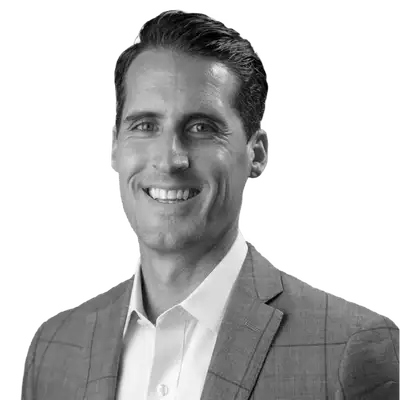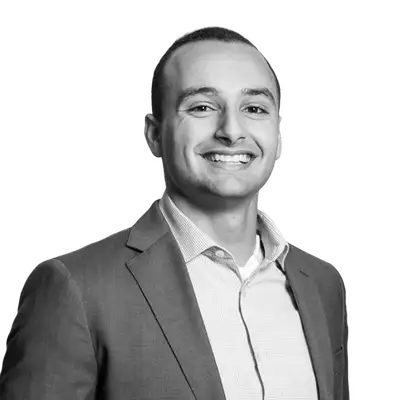Chapter Outline
(00:00) The Power of Tiny Habits
The episode opens with a focus on how small, consistent habits are the underlying force behind building significant wealth that endures for generations. The hosts discuss parallels between investing, personal development, and the science of habit formation, referencing James Clear’s "Atomic Habits" and proven strategies from top investors.
(03:00) Long-Term Investment Success Stories
Using Warren Buffet as an example, the discussion highlights how patient, disciplined investing—rooted in steady habits and a solid foundation—generates outsized results over time. The importance of starting early and compounding simple behaviors is emphasized, especially for young, high-earning clients.
(05:00) Building Foundations Through Systems
Automated savings, disciplined investing, staying within a budget, and scheduled family meetings are presented as actionable pillars of a successful wealth strategy. Habitual practices such as gratitude and generosity are framed as key components in fostering a positive wealth mindset and ensuring values are passed down.
(07:00) Ownership and Collaborative Stewardship
Listeners are encouraged to take an active role in their financial journey, owning their outcomes while leveraging expert guidance. The conversation underscores that while technical advisors set the framework, true wealth creation depends on daily discipline and responsible choices within the family dynamic.
(09:00) Daily Practice and Values Alignment
The episode closes with a call to integrate foundational habits and value-driven thinking into everyday routines. The hosts urge listeners to consistently practice these principles, blending human and financial capital management, in order to sustain a thriving family legacy across generations.
Keywords: generational wealth, wealth habits, financial legacy, investment strategies, family office, multi-generational planning, automated savings, financial discipline
Creators and Guests
What is AWM Insights Financial and Investment News?
A bite sized discussion on timely financial news and investment topics, to help you maximize your net worth and wealth for the next generation with Justin Dyer and Mena Hanna of AWM Capital.
Justin: Hey everyone.
Welcome back to another
episode of a WM Insights.
Uh, we spent the last few weeks covering
a little bit what's going on in the
markets, but trying to bring some
context reminders on staying disciplined,
really, uh, uh, how that then can
lead into multi-generational wealth.
Mena: And
Justin: I would say the through line
there, maybe the sub context is that tiny
habits actually do generate tremendous
wealth, tremendous multi-generational
wealth if you can stick to them.
And so we're going to dig into those,
maybe talk about the a, a framework,
um, and what are those habits?
What do we know, what is, what has
been proven over time from some.
Well-known investors and, and what
do we know just from, from the data
and behaviors that we see across, uh,
uh, large sets of investors overall.
Uh, and you know, within that you
can really take similar frameworks
from the mental performance game.
Good old friend Brian Kane
and what he does over there.
Uh, also.
Someone like James Clear and uh, he,
his book Atomic Habits, we know that
tiny habits across all facets of life
lead to compounded benefits or create
compounding results, if you will, and
lead to substantial benefits over time.
And so that's kind of what the
conversation's gonna meander around today.
It, it doesn't take a lot, quite honestly.
But at the same point in time, it's
kind of, it's difficult because we are
still these, these, uh, beings with
emotions, crock brain, you know, whatever,
whatever term you wanna apply to us.
Complicated humans, um, that
often get in our own way.
Investing is no different than just
say the mental game or trying to quit
smoking or what, you know, pick your,
pick your challenge, whether it's a, a
vice or a, a virtue that you're trying
to develop investing slots in there.
Um.
Kind of in the same, in in the same vein.
Uh, and so we're gonna, we're
gonna get into that right?
Markets, uh, are still interesting.
We're not trying to gloss
over what's going on.
There's more uncertainty and tariff 2.0,
uh, right around the corner.
But we, we want to hopefully, uh,
leave everyone today with this.
Just a reminder.
Hey.
It's small habits.
It's these, these little things that you,
you can control if you pay attention to
them on a regular basis to really lead
to, uh, to multi-generational wealth.
So with that, you know, let's get into it.
Um, I mean.
Mena: you
Justin: There's great examples from
long-term investors like Warren
Buffet, who it is kind of this boring,
tried and true long-term patient
individual who's just stick stuck.
Stuck, excuse me, stuck to his plan.
I think there's a, there's a great
statistic around him where the vast
majority of his wealth has actually been.
Generated after, after some late age.
I, I'm not gonna say the age,
but it's like after age 40
or 50 or something like that.
Maybe you know that statistic better
than I do, meaning, um, but right, like
it, it's just a great reminder that
these small things repeated over time,
sticking to the process, sticking to
the plan, really, really do compound
Mena: Yeah, and great
results in the earlier years.
You can think about saving money
as building that foundation.
Taking the Warren Buffet example,
I think he, he got to a million
dollars before he was 25 or 30, and
that might not sound like a lot of
money, but you, you let that compound.
He was obviously very diligent and he's
famous for being very diligent, not
spending a lot of money saving, investing
properly, investing in high quality
companies, and yeah, over a 60 to 70 year
period of time, those small habits, along
with the foundation that you establish
can really turn out to be something.
Phenomenal.
And for our clients that that are.
Primarily very, very young and they
will have a fa fantastic foundation just
with earnings from their playing career.
Being thoughtful,
maximizing
Justin: those
Mena: earnings,
Justin: and also
Mena: investing
Justin: them
Mena: properly and working with,
with a team and building a strategy
Justin: that is putting you,
Mena: setting you up for
success is 100% the way to go.
And if you're not doing that,
you're not being a good.
Steward for your money.
Justin: Yeah.
And, and so much of the framework
and discussions we have with you all.
Mena: is a,
Justin: Is is in line with this, right.
We're not just having those
conversations because it sounds fun
or you know, it gives convenience to
clients, but automated savings, right.
The, the foundation you talked
about, let's start there.
Automated savings and investing.
Investing.
Put money to work, right?
Holding cash.
I think you talked about
it last week is, is.
Risky in and of itself.
'cause you have to figure out when
to actually put that money to work or
you're not keeping up with inflation.
And so these simple little
things build up over time.
Automated savings, regular
meetings amongst the family.
Certainly from a generational
wealth standpoint, right?
We often say that money doesn't transfer.
Because of a lack of skill
or technical know-how.
It's family dynamics are not transferring
knowledge and values, et cetera.
Uh, making sure you're
living within your budget.
All of these really basic things.
One I really, really like,
especially from a family dynamic
standpoint of value standpoint is
practice gratitude and generosity.
I like, as we were put,
putting some notes together.
I think that's a really.
Really, really powerful component to
this idea of developing and imparting
a wealth mindset to future genera,
uh, future generations, excuse me.
Um, and so these little things
within our general framework are
all designed to set you up for
success, both over the short term.
We know that.
You know, whether it's optimizing
taxes in a, in a given tax year.
Uh, but that's a compounding
effect for the long term as well,
for multi-generational impact.
So these little things, this foundational
practice, the tiny habits that both
you all listening can control, but we
all certainly do on a daily basis a
lot, as well as thinking about bigger
picture, family dynamics, conversations,
value, value, um, uh, uh, uh.
What do I wanna say?
Value transitioning or transfer rather,
is what I wanna say are, are, are
all these core pillars, both to, uh,
generational wealth, but just general
investing at large, I would say as well.
Mena: Yeah, and, and really
what you're talking about is
composed of small, small steps.
Tiny, tiny little habits that over
a long period of time generate
this, this tremendous wealth.
I'm just gonna out myself right now.
I do not have a family office managing
my money, managing my taxes, and.
You know,
going through this process of, of
setting up this episode, I, I saw
a lot of areas of opportunity where
I can do something small and it can
impact my wealth moving forward.
So it's definitely gonna be
something that, that I think
about that I'm intentional with.
Um, I'll, I'll tag the
tax team, um, and try to.
Set up a few conversations with Jay
just to see where I can improve my
process, but I would encourage our
listeners to do the same thing.
There's usually something low hanging
fruit that you can start with that just
starts, uh, hopefully a train of, of
good habits and a trend of good habits.
And it's, it's the, the start that stops
most people, as, uh, Brian Kane likes to
Justin: Yeah, 100%.
And I think it's also an important,
um, tie in here the to one
of our core taglines, right?
We say Own your wealth and we truly
mean that, that this is like we are
here as the experts and really here
to guide, provide advice, technical
know-how and implementation, but.
It is a relationship it's,
it's a two-sided relationship.
There are things that are in your
control that you can take ownership of
yourself, especially in the foundational
piece and, and within the family dynamic
piece, we're certainly there to help
and
then we're there to add on from
the foundational layer, but.
These additional items, if someone's
outspending, uh, or not saving altogether,
there's very little we can do, right?
Good investments are not going to
outperform bad money management.
It's that simple.
And so this, the reason why I think it's
important for us to pause talking about
the markets in an, in an anecdotal way
and, and focus on discipline and, and
a lot of those really, really important
topics and look a little bit longer
term, is to just re-o rient ourselves
and remind ourselves that this is A,
a, a, both long-term endeavor, but B,
something
that needs to be practiced
on a daily basis.
You need to wake up.
Thinking about your values, your
habits across the board, whether
it's on your human, the human
capital side, the financial capital
side, and really to optimize where
you want to be as a, as a family.
Um, so hopefully a little bit
of a different topic today.
Um, certainly, uh, one
we don't hit on too much.
I mean, it definitely, um, it, it
resonates with, with topics that we've,
we've covered but in a different vein.
Uh, and hopefully it was helpful.
Um.
Definitely let us know, right?
The more feedback we get from
everyone, the better off these
conversations and topics will be.
Uh, and until next time, own your wealth.
Like I said, make an
impact and always be a pro.
Thanks for listening.

